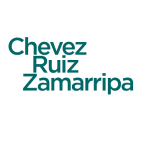One of the main challenges facing tax administrations around the world is the lack of comprehensive and relevant information on aggressive tax planning strategies. Efficient access to this type of information allows tax authorities to promptly mitigate the risks of losing revenue, either through proper risk assessment, relevant tax inspections or by amending applicable legislation and/or regulations.
In force since January 2020, the tax reform included changes to the tax legislation that mostly follow the guidance set forth by Action 12 of the BEPS Action Plan of the OECD. In general terms, BEPS Action 12 outlines how tax administrations and policy makers could mitigate the risks of losing revenue due to aggressive tax planning by applying tools designed to increase the flow of tax information regarding such risks.
In this context, and with the objective of strengthening the tax authorities' capabilities, Congress incorporated a federal regime to ensure the disclosure of operations that qualify under the term 'reportable schemes'. The obligation to disclose reportable schemes is imposed not only on the tax advisers involved in them, but in some cases on the taxpayers themselves.
The explanatory memorandum of the tax reform notes that BEPS Action 12 concludes that the tools achieve their objectives successfully, observing that such regimes have proven to be highly effective in the countries that have implemented them. This list includes the UK, the US, Ireland, Portugal, Canada and South Africa – though it should be mentioned that not all countries with mandatory disclosure regimes have collected data on their effectiveness.
General characteristics
The Mexican Tax Code (CFF), in force since January 1 2020, considers a 'scheme' to be any plan, project, proposal, advice, instruction or recommendation, expressly or tacitly externalised, in order to materialise a series of legal acts. Proceedings before tax authorities or a taxpayer's defense within a tax dispute will not be deemed to constitute a scheme.
A scheme shall be reported when it generates or could generate, directly or indirectly, a tax benefit in Mexico and fulfills any of the characteristics provided for in the CFF. These features are detailed below, classified as 'generalised' or 'customised' reportable schemes.
For these purposes, the monetary value derived from any reduction, elimination, or temporary deferral of a contribution is considered a tax benefit. This includes, among others, the effects achieved through deductions, exemptions, non-taxation, non-recognition of a cumulative gain or income, adjustments or absence of adjustments to the tax base of the contribution, the crediting of contributions, the re-characterisation of a payment or activity, or a change of tax regime.
Generalised reporting schemes, on one hand, are deemed to be those seeking to be marketed massively to all types of taxpayers or to a specific group of them (even if they require minimal or no adjustments to suit the specific circumstances of each taxpayer, provided that the way in which the tax benefit is obtained is the same).
Customised reportable schemes, on the other hand, are considered those that are designed, marketed, organised, implemented or managed to suit the particular circumstances of a specific taxpayer.
The applicable provisions emphasise that the disclosure of these schemes will not imply an acceptance or rejection of their tax effects by the tax authorities. The new legislation expressly notes that such information may not be used as precedent to investigate a criminal offence, except for the criminal offences set forth in Articles 113 and 113-BIS of the CFF (i.e. those regarding the alteration of control devices, customs and security seals, tags, as well as those regarding the issuance, alienation or acquisition of invoices supporting non-existent, false or simulated transactions).
When will the schemes start to be reportable?
The schemes that need to be disclosed are those designed, marketed, organised, implemented or administered in 2020, or, before that year if any of its tax effects are reflected within 2020 or any fiscal year thereafter. In the latter case, only the taxpayer will be under the obligation to disclose. Additionally, as per one of the transitory provisions, the applicable disclosure obligations will start as of January 1 2021.
Who is under the obligation to disclose the reportable schemes?
Under the different premises mentioned below, either the tax adviser or the taxpayers themselves (being the individual or entity that obtains the tax benefit) may be bound by the obligation to disclose the reportable schemes.
Tax advisers
By tax adviser, it shall be understood that any individual or entity that within the ordinary course of their activity: (i) is responsible or involved in the design, marketing, organisation, implementation or management of a complete reportable scheme; or, (ii) makes available a complete reportable scheme for implementation by a third party.
Reportable schemes must be disclosed regardless of the taxpayer's tax residence and provided that a tax benefit is obtained in Mexico.
The tax advisers shall be required to disclose reportable schemes if they are a resident in Mexico or if they are a resident abroad with a permanent establishment in Mexico derived from the activities carried out by a tax adviser. In the case of foreign residents who have a related party or permanent establishment in Mexico, it will be presumed that the tax advice was provided by such related party or permanent establishment. This same presumption will apply in the event that a third-party provides tax advice under the same brand or trade name in Mexico as the tax adviser residing abroad.
Where there are several tax advisers required to disclose the same reportable scheme, in order to comply with this obligation, it is sufficient for one of the tax advisers to disclose the reportable scheme and inform the rest of the tax advisers that they did so.
As for individuals that provide tax advisory services through an entity, to comply with this obligation, it is sufficient for the entity to disclose the reportable scheme. That is, the entity will be considered the tax adviser.
The tax adviser shall obtain an identification number for each reportable scheme they are involved with and issue proof to the taxpayer. They must also inform the other tax advisers who participated in the related reportable scheme; failure to do so will result in the other tax advisers continuing to be under the obligation to disclose the reportable scheme. In the event of one tax adviser not agreeing with the content of the statement filed by another tax adviser, the former will remain obliged to disclose the reportable scheme and will be able to fulfill this obligation through an informative supplementary statement. It is expressly stated that fulfilling obligations under the reportable schemes' regime shall not constitute a breach of confidentiality that tax advisers might be under by virtue of any profession.
In the event that the scheme produces a tax benefit but it does not qualify as reportable, tax advisers shall issue taxpayers a notice with the justification and reasoning behind why it is deemed not to be a reportable scheme. This notice must be delivered within five days from the date that the reportable scheme is made available to the taxpayer or from the date in which occurs the first legal act that is part of the scheme, whichever occurs first.
Tax advisers must file an informative statement in February of each year, including the taxpayer ID number and legal and/or business name of each of the taxpayers to which they provided tax advisory services in connection with reportable schemes.
Taxpayers
Taxpayers are required to disclose reporting schemes when:
The tax adviser does not provide them with the identification number of the reportable scheme issued by the tax authorities (SAT) or give them a notice that the scheme is not reportable;
The reportable scheme was implemented prior to January 1 2020;
The reportable scheme has been designed, organised, implemented and managed by the taxpayer or by a person that does not qualify as a tax adviser; and
There is a legal impediment for the tax adviser to disclose the reportable scheme, or there is an agreement between the tax adviser and the taxpayer in which the taxpayer agrees to be the one subject to the obligation to disclose.
It is important to note that taxpayers who are tax residents in Mexico, or tax residents abroad with a permanent establishment in Mexico, will also be bound by the obligation to disclose the reportable schemes if they carry out transactions with related parties that are tax residents abroad and such schemes generate tax benefits in Mexico for the tax residents abroad.
Which are the reportable schemes?
A scheme shall be reportable when it generates or can generate, directly or indirectly, a tax benefit in Mexico and meets any of the characteristics specifically set forth by the CFF, which are listed below in general terms:
Avoids the exchange of tax or financial information between tax authorities;
Avoids the application of the preferential tax regime (Mexican CFC rules) or transparent foreign tax entities regimes;
Involves the transfer of tax losses to other entities;
Returns all or part of the payments to the person who made them (or to its partners or related parties) through interconnected transactions;
Applies a tax treaty, resulting in income not being taxed or allowing it to be taxed under a reduced rate abroad compared to the foreign corporate tax rate applicable in that jurisdiction;
Involves transactions with related parties in specific cases (such as the transfer of intangible assets of complex valuation, certain business restructurings in accordance to the OECD's Transfer Pricing Guidelines, or transactions that transfer assets or provide services in exchange for no consideration or for which there is no reliable comparison, or use a unilateral protection regime in accordance to the abovementioned OECD's guidelines);
Avoids constituting a permanent establishment;
Involves the transfer of depreciated assets (partially or totally), in such a way that a related party may depreciate such assets;
Involves a hybrid mechanism;
Avoids the identification of the effective beneficiary of the income or assets;
Transactions seeking to utilise tax losses about to expire;
Avoids applying the 10% rate of the income tax imposed on dividends paid;
Involves the leasing and subsequent subletting to the original landlord or a related party;
Involves transactions whose accounting and tax records have differences greater than 20% (except in relation to depreciation differences); and
Applies mechanisms that avoid the application of the reportable schemes regime.
As it can be seen, some of the characteristics listed above are broad and general concepts for which doubts will most likely arise in respect to the obligation or not to report certain specific transactions.
Infringements and penalties
The new reportable scheme disclosure regime sets forth the circumstances in which tax advisers will be deemed to have infringed their obligations. It is important to consider these cases of infringement because of the considerable penalties that they entail. On one hand, the penalties imposed on tax advisers consist of fines ranging from approximately $680 to $900,000 US dollars (for practical purposes, the exchange rate considered was $22 Mexican pesos per every US dollar). On the other hand, the penalties imposed on taxpayers consist of fines ranging from approximately $2,200 US dollars to the prohibition of applying the tax benefit provided for in the reportable scheme.
In addition, where the taxpayer does not disclose a reportable scheme or discloses an incomplete version or with errors, the tax authorities may impose an economic penalty equivalent to an amount between 50% and 75% of the tax benefit's value obtained, or expected to be obtained, through the reportable scheme in all fiscal years in which the reportable scheme has been or would be applicable.
Finally, it is important to note that the Tax Administration Service (SAT) will issue the regulations applicable to the disclosure of reportable schemes, and that the Ministry of Treasury and Public Credit (SHCP) will issue the thresholds regarding the minimum amounts needed to trigger the applicability of this new regime. However, it should be stressed that at the time this article was prepared, the issuance of these regulations was still pending.
It is expected that these regulations will help clarify certain matters regarding the applicability of the new regime. Thus, these regulations should assist to avoid imposing a disproportionate formal burden on taxpayers. Above all, we expect that with these regulations it would be possible to determine and limit the scope of various cases so as not to rely on such a broad reportable scheme concept that results in a situation of legal uncertainty for both taxpayers and tax advisers.
Likewise, we expect that the issuance of administrative regulations will also help avoid generating a significant volume of idle and excessive reportable information that could result in the tax authorities facing greater difficulties in effectively processing or analysing the information obtained.
Regardless of the complexities that arise at this moment due to the lack of administrative regulation to the disclosure of reportable schemes' regime, the importance of complying with these new obligations should be reiterated. Thus, taxpayers are invited to carry out a thorough study of past and present transactions that could generate tax benefits from January 1 2020, and could trigger any of the cases that mandate the disclosure of a reportable scheme (even if they were carried out before 2020). Additionally, to fulfill tax obligations and avoid economic penalties in the future, we urge you to establish the necessary policies, guidelines and internal controls to correctly identify any operation that may qualify as a reportable scheme.
Click here to read this article in Spanish
Click here to read the entire 2020 Mexico Special Focus guide

Carlos Naime
Partner
Chevez Ruiz Zamarripa
T: +52 55 5257 7068
Carlos Naime joined Chevez Ruiz Zamarripa in 1995 and was admitted as partner in January 2006. He has focused his professional practice on providing tax advice to public and private companies in domestic and international transactions such as, mergers, acquisitions, associations and corporate restructures in general and financial transactions.
Carlos also provides tax consulting to private equity funds and companies in the industrial and commercial sectors regarding day-to-day operations, and in their interaction with the Mexican tax authorities, including support in the negotiation and resolution of issues derived from tax examinations. His work includes estate and succession planning for individuals and family offices.
Carlos has taught several tax courses at the Universidad Iberoamericana (UIA). He is a frequent lecturer in seminars on Mexican taxation in Mexico and abroad, and has also written several articles on tax matters.
Carlos holds a law degree from Universidad Latinoamericana (ULA), and a public accountant's degree from UIA. He has also completed a diploma course in international taxes from Instituto Tecnológico Autónomo de México (ITAM) and Duke University.

Silvana García
Associate
Chevez Ruiz Zamarripa
T: +1 212 223 4434
Silvana García joined Chevez Ruiz Zamarripa in October 2019. She has focused her practice in estate planning for families and individuals, specifically in regard to matters with tax consequences in Mexico and the United States.
Academically, Silvana has focused on anti-money laundering. She published an article in El Mundo del Abogado and participated with a chapter for the second edition of a book about public-private partnerships.
Silvana studied law at Universidad Panamericana, before going on to earn a master's in law degree from the University of Pennsylvania. She also holds a business and law certificate from Wharton School of Business.

Marlene Guillén
Senior Tax Consultant
Chevez Ruiz Zamarripa
T: +52 55 5257 7000
Marlene Guillén joined Chevez Ruiz Zamarripa in March 2017. She has focused her career on tax consulting.
Marlene's professional background as a consultant has been shaped by her interest on inter-business daily transactions, the consolidation of corporate mergers, spin-offs and restructuring processes, as well as for real estate projects and tax-related procedures near the competent fiscal authorities.
Marlene holds a bachelor’s degree in public accounting and financial strategy from the Instituto Tecnológico Autónomo de México (ITAM) and a diploma in international tax.














